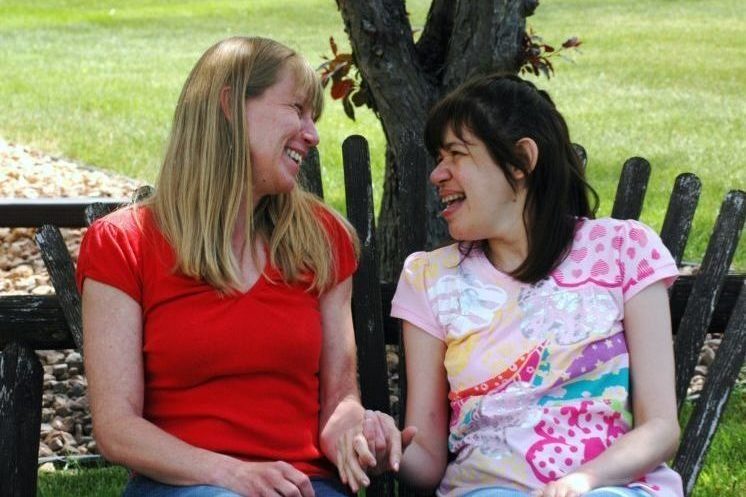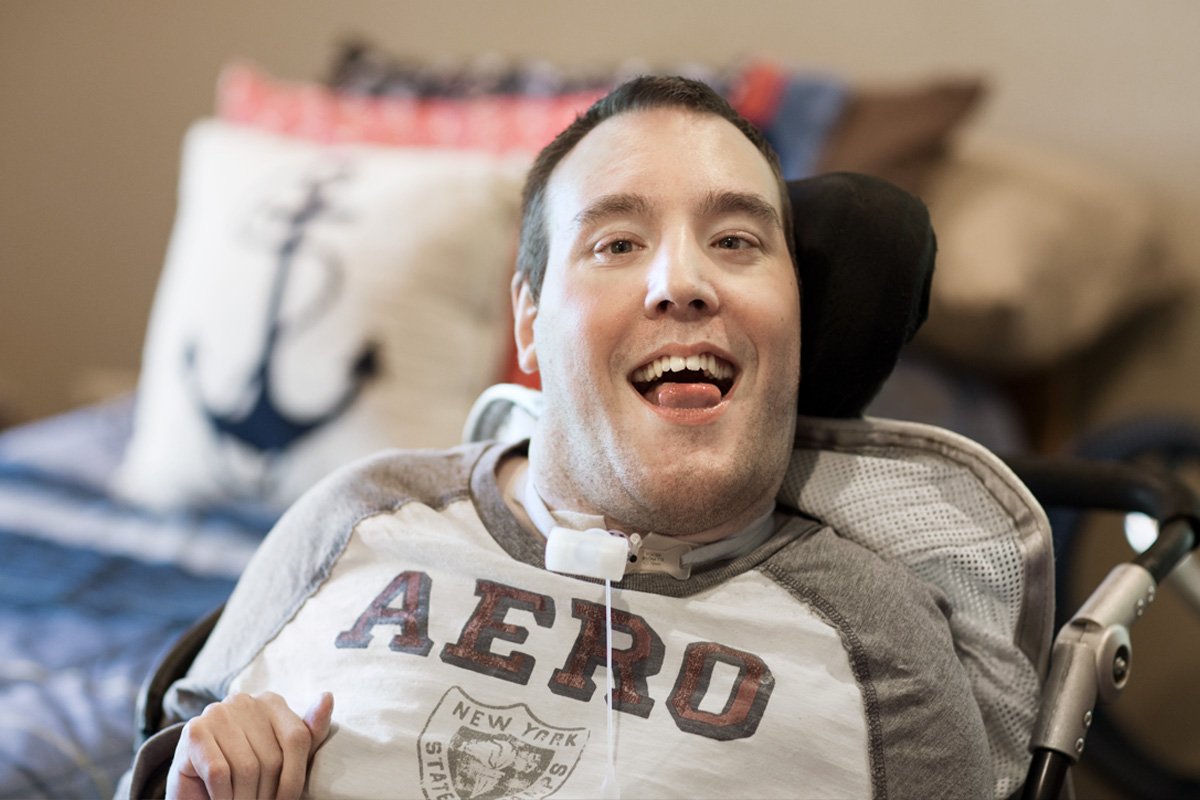Eating Well and Living Well: Supporting Our People with Disabilities Through Nutrition and Lifestyle
May 1, 2025

People with disabilities face unique challenges in achieving optimal health and well-being. In residential or community-based care settings like Homeward Bound, fostering a culture that prioritizes nutritious eating and holistic wellness is not only a matter of best practice—it’s a human right and a public health imperative. A growing body of research underscores that individuals with disabilities are at heightened risk for poor nutrition, obesity, sedentary behavior, and related chronic conditions.
Homeward Bound is working on the cutting edge in it’s project Eat Well-Live Well, addressing these factors proactively through inclusive dietary planning and wellness programming. With EWLW, Homeward Bound is working to set a high bar for enhancing quality of life, functional independence, and long-term health outcomes for people with disabilities who we serve.
The Nutritional Disadvantage
Its unfortunately the case that many individuals with physical or intellectual disabilities experience barriers to accessing and consuming healthy food. These barriers may be physical (e.g., difficulty with meal preparation), cognitive (e.g., challenges understanding nutrition information), economic, or social (e.g., reliance on institutional meal planning) (Rimmer & Yamaki, 2006). Moreover, some disabilities are associated with metabolic or gastrointestinal conditions that require specialized diets, yet these are often not sufficiently addressed in institutional settings (Bandini et al., 2010).
Malnutrition, both under- and over-nutrition, is a significant concern. Obesity rates are substantially higher in people with disabilities, particularly those with intellectual and developmental disabilities (ID/DD), who may be less active and more reliant on others for food choices (Hsieh et al., 2014). Conversely, undernutrition is also prevalent, especially among individuals with motor disabilities or swallowing disorders, which can lead to deficiencies in key nutrients such as protein, iron, calcium, and vitamin D (Böhmer et al., 2007).
The Role of Supportive Environments
Creating environments that support healthy eating habits involves more than offering nutritious meals—it requires a coordinated approach to food education, autonomy, and cultural sensitivity. According to the World Health Organization (2011), community-based interventions that include nutritional education, individualized meal planning, and staff training significantly improve dietary quality among people with disabilities.
Direct Support Workers, Nurses and caregivers play a pivotal role. Their knowledge, attitudes, and behaviors directly influence the nutritional intake of residents (Pilling et al., 2016). Therefore, training staff in nutrition basics and adaptive feeding techniques can empower them to encourage better choices and assist with safe eating practices tailored to each person’s needs.
Homeward Bound’s Holistic Nutrition Approach
Recognizing the powerful link between food and overall health, Homeward Bound has partnered with registered dietitians from Launch My Health to redesign and enhance their menus (Launch My Health). This collaboration ensures that individuals served by Homeward Bound receive meals that are not only balanced and nutritious but also aligned with their medical and emotional well-being. The updated menus are crafted to care for the whole health of each person, addressing physical, mental, and social dimensions of wellness through thoughtful, evidence-based meal planning. By integrating guidance from nutrition professionals, Homeward Bound is setting a new standard for person-centered food service in disability support settings.
Learn more at: https://www.launchmyhealth.com
Holistic Living and Physical Activity
In tandem with nutrition, a well-rounded wellness program should include opportunities for physical activity, social engagement, mental stimulation, and emotional support. Regular exercise has been shown to reduce the risk of cardiovascular disease, improve mood, and enhance functional mobility in individuals with disabilities (Martin Ginis et al., 2016). Yet people with disabilities often face environmental and logistical barriers to physical activity, including inaccessible facilities and lack of appropriate programming.
To address this gap, Homeward Bound has launched its Recreation Reboot initiative—an innovative effort to reimagine and expand recreation opportunities for all individuals living within its communities. Recreation Reboot is designed to infuse daily life with accessible, engaging, and meaningful activities that promote joy, connection, and movement. Whether it’s adaptive sports, gardening, music therapy, or community outings, the initiative ensures that recreation is not a luxury but a core component of living well. By maximizing the variety and accessibility of leisure activities, Recreation Reboot supports emotional and social well-being while enhancing overall quality of life.
Person-Centered Planning
Central to effective health promotion is the principle of person-centered care. Dietary and wellness plans should be tailored to individual preferences, cultural backgrounds, and medical needs. Engaging residents in meal planning, cooking activities, recreation, and fitness decisions increases autonomy and self-esteem, which are key components of mental and emotional well-being (Moran et al., 2013).
Moreover, regular health assessments—including nutritional screenings, weight monitoring, and physical activity evaluations—should be embedded into routine care to identify and address health risks early.
Policy and Advocacy
Institutional policies must support access to healthy food and active lifestyles. This includes adequate funding for quality ingredients, staff time for meal preparation and assistance, and infrastructure that enables safe physical activity. Advocacy is also essential to ensure that disability-inclusive health policies are implemented at regional and national levels, aligning with the United Nations Convention on the Rights of Persons with Disabilities (UNCRPD), which affirms the right to the highest attainable standard of health without discrimination.
Conclusion
Eating well and living well in disability care settings is achievable—and essential. Setting a high bar for eating well and living well is all about embracing evidence-based nutrition practices, supporting physical activity, and centering care around individual needs, providers can create environments where people with disabilities not only survive but thrive. Organizations like Homeward Bound, through partnerships with leaders such as Launch My Health and innovative program initiatives like HBI’s Recreation Reboot, are demonstrating how integrated, person-focused strategies can uplift the standard of care and enhance the dignity, vitality, and joy of every person they support.
References
-
Bandini, L. G., Curtin, C., Hamad, C., Tybor, D. J., & Must, A. (2010). Prevalence of overweight in children with developmental disorders in the continuous National Health and Nutrition Examination Survey (NHANES). The Journal of Pediatrics, 157(5), 749–754.
-
Böhmer, C. J., Klinkenberg-Knol, E. C., Niezen-de Boer, M. C., & Meuwissen, S. G. (2007). The prevalence of gastroesophageal reflux disease in institutionalized intellectually disabled individuals. American Journal of Gastroenterology, 97(2), 250–254.
- Homeward Bound. (2024). Eat Well-Live Well Initiative. Retrieved From https://hbimn.org/services/ewlw/
- Homeward Bound. (2025). Recreation Reboot. Retrieved From https://hbimn.org/services/recreation-reboot/
-
Hsieh, K., Rimmer, J. H., & Heller, T. (2014). Obesity and associated factors in adults with intellectual disability. Journal of Intellectual Disability Research, 58(9), 851–863.
- Launch My Health. (n.d.). Whole person nutrition and lifestyle education. Retrieved from https://www.launchmyhealth.com
-
Martin Ginis, K. A., Ma, J. K., Latimer-Cheung, A. E., & Rimmer, J. H. (2016). A systematic review of physical activity interventions in people with physical disabilities: A meta-analysis. Archives of Physical Medicine and Rehabilitation, 97(7), 1262–1275.
-
Moran, D., Michailakis, D., & Giertz, H. (2013). Person-centredness in policy and practice: Enabling and disabling conditions for person-centred cre for people with intellectual disabilities. Scandinavian Journal of Disability Research, 15(3), 235–252.
-
Pilling, D., Barrett, M., & Floyd, M. (2016). Supporting nutrition and hydration in residential care. Nursing Standard, 30(20), 41–47.
-
Rimmer, J. H., & Yamaki, K. (2006). Obesity and intellectual disability. Mental Retardation and Developmental Disabilities Research Reviews, 12(1), 22–27.
-
Rimmer, J. H., Riley, B., Wang, E., & Rauworth, A. (2004). Development and validation of AIMFREE: Accessibility Instruments Measuring Fitness and Recreation Environments. Disability and Rehabilitation, 26(18), 1087–1095.
-
World Health Organization. (2011). World Report on Disability. Geneva: WHO Press.
News / Spotlight Stories / Eating Well and Living Well: Supporting Our People with Disabilities Through Nutrition and Lifestyle


